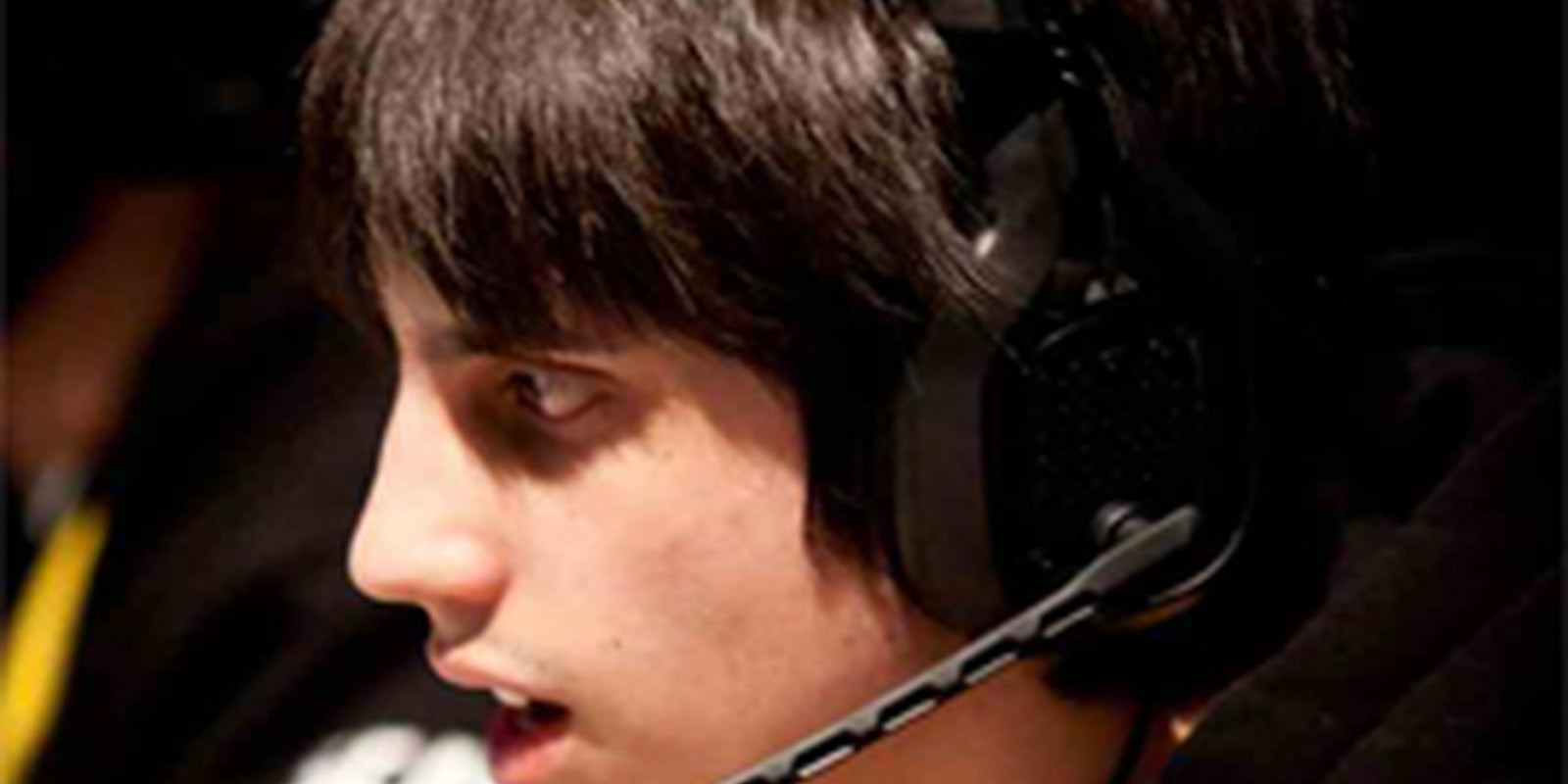Riot Games, producer of the popular League of Legends (LoL), a multi-player battle game boasting 32 million players, has given one of its most high-profile professional players a year-long suspension from its servers because of bad behavior.
The player, Christian Rivera, known on LoL servers as IWillDominate, was sanctioned yesterday for his “persistent tendency to engage in verbal abuse and insults, his lack of cordial demeanor, and his treatment of less-skilled players,” according to the League of Legends moderating system, known as the Tribunal. The decision was so grave that Riot Games’ Vice President of eSports, Dustin Beck a.k.a Redbeard, prefaced it with a community announcement:
Hi Summoners, …
Today I’ve got some tough news to share with you. We take sportsmanship and player behavior very seriously, and we fundamentally believe that pro players should not be exempt from scrutiny over their behavior….
The decision to impact someone’s career is not one we make lightly, which is why this is tough news to deliver. Unfortunately, our Tribunal recently was forced to permanently ban a pro player as a response to his persistent toxic behavior… It’s important to note how severe and consistent the behavior of this particular individual was, as is outlined in the ruling. No other professional players in NA approach this individual’s harassment score….
Promoting good sportsmanship and improving player behavior is a mission that’s extremely important to Riot, and this ruling is a reflection of our commitment.
In the world of most professional sports leagues, players typically only get banned completely from the game because of illegal or criminal activity—and suspensions generally only last a few games at best. In the world of eSports, however, things often come down to simple democracy: upset enough people with your rude and disruptive behavior, and you can be gone. Specifically for MOBAs—battlefield games like League of Legends—bad behavior usually means one of three general categories: “feeding,” or intentionally dying in order to weaken your own team; “rage quitting,” or flouncing offline in the middle of a game (which leaves your team a man down); and verbal abuse.
Riot’s Tribunal system allows players who’ve reached a certain level of play to vote to punish other players for violating the game’s rules of behavior, known as the Summoner’s Code, or pardon them if they think punishment is unwarranted.
Exactly how serious was Rivera’s behavior? Serious enough that he’d been before the Tribunal eight times already, until the players voted to consider him for a permanent ban. The Tribunal placed him in the “worst 0.7% of all North American players” and noted that “his harassment score has risen more than 30% from early August to the present date.”
Though permanent bans are rare, they do happen: one player to receive a permanent ban was Grackis, issued a permanent ban after several week-long bans did nothing to curb the community’s dissatisfaction Riot also fired one of its own employees for racist statements made during a livestream in early 2011.
Rivera is a member of the professional Team Dignitas, a respected international team founded in 2003 out of Britain. Team Dignitas functions more like an online clan, with participants battling it out in multiple professional eSports games. One of those sports is League of Legends, which pays pro teams to compete in its tournaments. Riot was paying Rivera to be a community leader as well as a skilled sportsman. By banning him, Riot essentially gave him the pink slip.
While some members of the LoL community thought the punishment was too severe, the vast majority of players approved. “[H]is playing a GAME and insulting random people should not jeopardize his JOB,” wrote Eruka Frog on the LoL boards.
“You won’t see a [pro football] receiver purposely throw a game because the quarterback threw an interception,” responded player Vivid. “If you show a lack of professionalism and impede your own team’s success then I say his tournament ban was very well put in place.”
The gaming community has had many instances of similar behavior to deal with this year, much of it sexist in nature. In February a female player resigned during a Cross Assault exhibition match rather than endure continued harassment from a player on her own team. He declared after the match that sexual harassment is just a part of the fighting game culture. But not everyone agrees. Just last month, Halo 4’s producers revealed that sexism and other offensive behavior on the servers could earn you a lifetime ban.
While Riot Games didn’t cite specifics of Rivera’s behavior in their judgment, it’s clear that to have appeared before the Tribunal 9 times, he must have managed to offend everybody.
And even though Riot’s decision may not impact gaming outside of the MOBA community, we can only hope that the ban is one more indication of change within gaming culture.
The tide may finally be turning in favor of gamers who have to endure harassment, bullying, and offensive language in order to play.
Photo via team-dignitas.net


